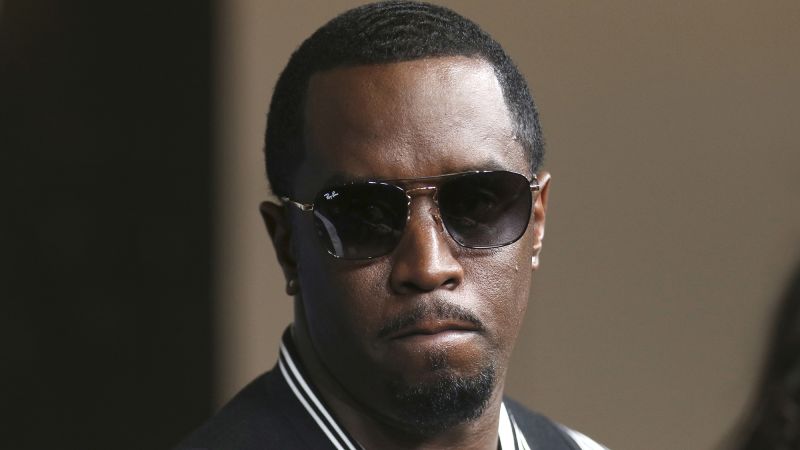Sean “Diddy” Combs, a prominent figure in the music industry and cultural icon, has recently been acquitted of some serious charges in a federal sex trafficking trial. However, this legal victory does not guarantee the reinstatement of his once-thriving business empire. At 55, Diddy, known for his substantial influence in hip-hop, faces the aftermath of allegations that have severely tarnished his reputation and hindered his numerous ventures.
In a significant legal development, Combs was acquitted of charges including racketeering conspiracy and sex trafficking on a Wednesday, yet he was convicted for prostitution offenses. The trial showcased disturbing allegations against him, with witnesses recounting instances of violence accompanied by accounts of drug-fueled parties he purportedly referred to as “freak-offs” or “hotel nights.” Specifically, Combs was found guilty of violations related to the Mann Act, which prohibits transporting individuals across state lines for illegal sexual conduct, as he was accused of flying individuals—including paid sex workers—around the country for exploitative encounters. As he awaits sentencing, he remains in custody.
The implications of these revelations extend far beyond the courtroom, eroding the foundation of Combs’s business portfolio and public image. Preceding his arrest, Combs had already seen significant setbacks in his entrepreneurial ventures. Notably, he resigned from and completely divested from Revolt TV, a network he founded in 2013 that primarily focused on hip-hop culture and social justice. This move was emblematic of broader difficulties, including the loss of a Hulu reality show deal and the removal of his fashion label, Sean John, from retail stores like Macy’s.
Consequences further intensified following the release of surveillance footage depicting Combs physically assaulting his then-girlfriend, singer Cassie, in 2016. This incident led various institutions and organizations to sever ties with him; New York City revoked his ceremonial key, Peloton pulled his music, and Howard University rescinded his honorary degree. Additionally, his charter school located in Harlem terminated its relationship with him.
In light of these challenges, Combs settled a legal dispute with Diageo after withdrawing a lawsuit, thereby relinquishing sole ownership of his liquor brands, Ciroc and DeLeon. Although many of his ventures are in disarray, the music catalog he has built over the years remains largely untouched—for the moment.
Now, assessing Combs’ music endeavors presents an interesting juxtaposition. Bad Boy Records, known for its association with hip-hop legends like The Notorious B.I.G., has struggled to maintain the momentum that characterized its success in the 90s. Prior to the onset of his legal troubles, Combs had successfully released high-profile projects, including “The Love Album: Off the Grid” in 2023, marking his first solo studio release in nearly two decades. The album garnered critical acclaim, contributing to nominations for prestigious awards, including the Grammy Awards.
As part of a public relations move, Combs returned publishing rights to former artists and songwriters ahead of the album’s release, an attempt to amend past criticisms regarding his treatment of their contracts. Although Bad Boy Records continues operations, the label has yet to announce any major forthcoming releases amidst the ongoing legal turmoil surrounding Combs.
In a show of familial support, a surprise EP titled “Never Stop” was recently released by his son, King Combs, in collaboration with Ye (formerly known as Kanye West). It demonstrates that while the label may face difficulties, the ties among artists remain resilient. Moreover, Bad Boy Records had achieved recent heights, backing Machine Gun Kelly’s successful album, underscoring its continued presence in the industry.
Nonetheless, multiple lawsuits alleging physical and sexual abuse continue to plague Combs, with one notably resulting in a $20 million settlement with Cassie. As the legal landscape progresses, the costs of defending against these accusations remain uncertain.
Federal prosecutors have indicated intentions to seize assets used in committing these crimes, though the verdict’s implications on Combs’ finances remain unclear. Even as the storm rages, his extensive music catalog continues to be readily available on major streaming platforms, with no current plans disclosed by these services regarding changes to their representation of his work.
Interestingly, there was a notable uptick in streaming numbers surrounding key moments in Diddy’s trial, including testimonies that captured public attention. Despite a temporary boost in interest, streams took a slight dip afterward. As the music industry evolves, Combs’ catalog underscores the complexities of fame intertwined with legal controversies.
On another front, Combs attempted to pivot to entrepreneurship by launching Empower Global, an online marketplace aimed at promoting Black-owned businesses, leveraging substantial personal investment. However, as 2023 nears its conclusion, several brands cut connections with the platform amid concerns about performance and Combs’ misconduct allegations.
In summary, while Sean Combs has navigated legal acquittals, the broader implications for his business and public persona are far-reaching. He grapples











